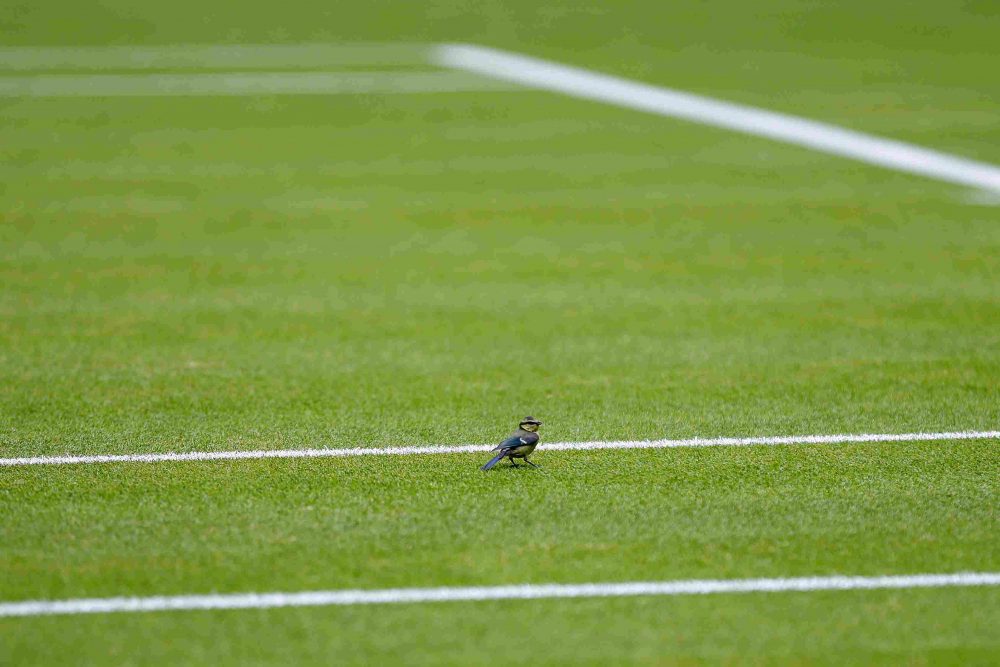In 2020, the entire tennis world was brought to a standstill by the Covid-19 pandemic. Many players and fans were negatively affected. In May 2020, Laureus Academy Member and tennis legend Boris Becker urged governing bodies to combine forces and find a solution to the sport, which was, and still is, in crisis. In his London home for the lockdown, Becker was facing up to miss his first Wimbledon tournament as a player and commentator. Nothing like this has happened since 1982.
Becker aired his concerns about the crisis in tennis as players were not only facing challenges due to no paycheck, but they couldn’t even give lessons in clubs due to the social distancing rules. He detailed how proud he was of the tennis sports industry because of their ability to offer the men and women equivalent prize money in the majors. He also commended the fact that they strived to give players equal rights on the tennis court.
The Cost Impact of Covid-19 on Wimbledon
Britain’s Lawn Tennis Association (LTA) revealed that the organisation’s income for 2020 saw a 40% reduction due to the Wimbledon cancellation, an occurrence never to have been seen since World War II. One of the major events cancelled as a result of the pandemic was the ATP Tour, a lucrative event at the Queen’s Club. The financial outlook for the LTA for 2021 depends on the operational result of the organisation’s major events this year.
The income reduction of about £30m that LTA experienced in 2020 brought about several implications. To cater to the deficit, in addition to suspending activities and using the furlough scheme, the LTA slashed over £10m of expenditure in other sections. To control cash flow, the LTA took a £15m overdraft loan protected against its reserves. The financial consequences of the organisational outcomes for The Championships 2021 and the LTA’s big grass-court events differ in effect but are serious.
The LTA utilises the revenue it earns from all outlets, along with the Championships’ surplus, to fund British tennis first from the grassroots up to the pro game. This includes competitions, participation programmes, events, performance pathways, and sustenance for professional players, venues and coaches.
Other Areas Affected by The Cancellation of Wimbledon
Another income-generating platform attached to Wimbledon is the markets for punters who register considerable winnings during these events. Like horse-racing and other sports, Wimbledon has its following and wagers that come along with massive wins. Without Wimbledon, there are no odds to wager against. You can understand more about tennis on the grass courts, get tips on how to determine which players wager on, and learn the best practices for Wimbledon wagering on thepunterspage.com.
Wagering is an ardent sport, and many people depend on it for entertainment as well as making big wins. With Wimbledon having been cancelled in 2020, numerous enthusiasts look forward to an engaging 2021 in the industry, albeit the Covid-19 protocols that will cause its own set of limitations.
Tennis as A Sport
A fractured political system has long shambled tennis with no overarching governing body. The wealth disparity between everyone else and the game’s stars became a glaring issue with the professional tour on lockdown and many of its players struggling fiscally. It is a sport in need of substantial change. Nevertheless, its winning qualities far outweigh its shortcomings. Arguably, its most important virtue is cosmopolitanism, which has made it an inspiration among other sports.
Many of its players, the likes of Serena Williams, Rafael Nadal, Roger Federer, Novak Djokovic, to name a few, are at home in almost any country they travel to play in. This is likely due to the borders tennis has transcended. At tournaments, numerous countries have representation, and national identity has minimal bearing on the friendships that are forged in those locker rooms.
What Next for the Sport in 2021?
In 2021, The All England Lawn Tennis Club (AELTC) plans to stage The Championships dependent on three scenarios: no capacity, a reduced capacity, or full capacity. Each of these scenarios has varying financial impacts, considering The AELTC does not have pandemic insurance for the year. In 2020, Wimbledon took insurance to cover them in case they had to cancel The Championships.
Budgets for 2021 will be approached cautiously as the Lawn Tennis Association’s reserves act as collateral against the overdraft the organisation was forced to take. On a side note, the LTA Trust is a charitable entity. It uses its reserves for long-term investments as opposed to operational expenditure.
The circumstances are challenging and all events held must adhere to the Covid-19 protocols, which complicates the planning even more. Additionally, the industry faces the reality of the general economic outlook, which directly affects sponsorship and, likely, hospitality.





















